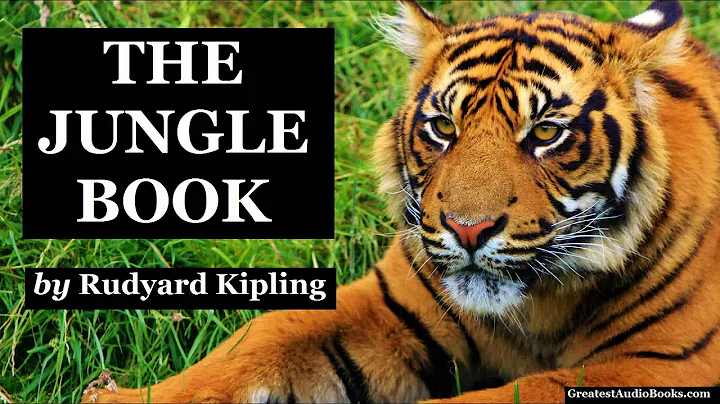
Kipling won the Nobel Prize that year for The Jungle Book ("The Jungle Story"). This book has also been loved by children all over the world for more than a hundred years. The story tells the story of a boy who was raised by wolves and several other animals in the jungle. The book became a best-seller.
The author is said to have written it based on real cases of children who disappeared into the jungle and managed to survive there. But Mowgli has a main prototype .

In 1867, a group of local hunters were trekking in the jungle of in the Agra region of India and saw a group of wolves entering a cave. In those days, wolves were a real problem: they could enter villages, kill livestock, and even attack people. The hunters decided to shoot the wolves by making a trap: the cave had two entrances, they decided to light a fire at one of the entrances, and when the wolves ran from the smoke to the other entrance, they would shoot them.

Everything was going according to plan until the men heard strange noises in the cave that didn't sound like the voices of wolves. A boy about six years old, unkempt and dirty, suddenly jumped outside. He got on all fours and moved with a roar.
By the way, there is a version in which the hunter saw the child entering the cave with the wolf and decided to save him by smoking the animal.
At first, the boy wouldn't let anyone come near him at all - he was barking, growling and making aggressive noises. But then he fell limply next to one of the wolves, clearly grieving his death as if he had lost a relative.
The boy was finally tied up and taken to the town. He was placed in an orphanage, named Dina (which translates to "Saturday" the day he was found), and given the surname Sanichar.

But life in an orphanage does not let children learn to socialize . "Wolf Boy" Dina cannot walk on two legs - he always runs on four. He also didn't learn to understand human speech, could eat from bowls on the floor, and only liked to eat raw meat. He took off all his clothes in an instant. His intelligence is superior to that of the wolf, but he is incapable of displaying any advanced human emotions. No matter how hard the orphanage staff tried to work with him, he was unable to behave in any human way.

Of course, over the years, Dina became more obedient and behaved like any domesticated animal, showing no aggression towards humans. But he showed no interest in humans and made no attempt to establish contact with humans.

But even the wolf boy has a friend in the shelter. A wild child like him. A baby boy was brought to the shelter, also found in the jungle and raised by animals. Sanicha soon found a common language with him. They played together, ran on all fours, and always slept together, clinging to each other like wolf cubs. But Sanicha's friend was weak, fell ill often, and soon died. For Dina, this became unbearable grief: he cried and howled day and night, unable to cope with the death of another friend.

Deana had grown up, and the missionaries worked long and hard on him. They managed to teach him to eat with a spoon, drink from a cup, and move on two legs. But that's his upper limit, that's all this wolf boy can do. He stayed in the orphanage for 20 years, but he never learned to read, speak and eat human food . Whenever there was raw meat, he would smell it before eating it, just like wild animals. Dina was "unusual" in appearance, about six feet tall, with a low forehead and large, sharp teeth. Here, the editor wonders: Could it be that eating habits change the beauty of teeth?
He understands human speech like a dog, relying on familiar phrases like "come here" or "go get something to eat." But he did pick up a human habit - he was a heavy smoker.

In 1895, Dina Sanichar died of tuberculosis.
In 1895, Dina Sanichar died of tuberculosis. In all the long years he spent among men, he never became human. He keeps feeling trapped and only dreams of breaking free and entering his jungle.

Dinah and Sanicha and children like him who grew up among wild animals are not the same as Mowgli created by Rudyard Kipling. Mowgli 's character still feels that he wants to understand human life and is interested in it, but the feral children, even if they are discovered as babies, are still more like animals than people.
Wolf children were repeatedly found and rescued from life in the wild, but almost all of them failed to develop into fully human beings.



![The Jungle Book [Full Audiobook] by Rudyard Kipling - DayDayNews](https://i.ytimg.com/vi/EPkUlXGHe2M/hqdefault.jpg?sqp=-oaymwEcCOADEI4CSFXyq4qpAw4IARUAAIhCGAFwAcABBg==&rs=AOn4CLBzzKDPEU8m0aTlyBkncsBThmujhg)

















